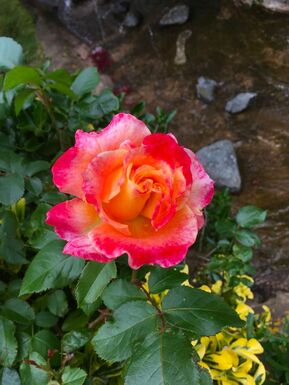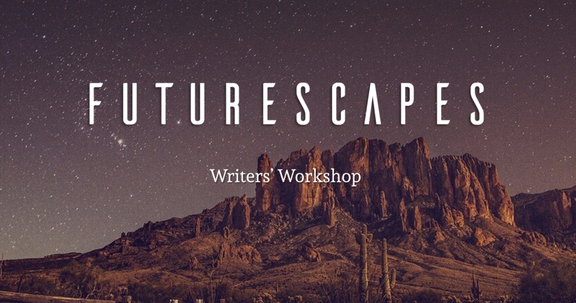|
Sometimes it's a deluge of typos, other times it's a trickle. Photo by Kate Ota 2020 While I love my editing software, ProWritingAid, nothing is perfect. Despite running six chapters through it and getting them as perfect as possible, when I had people read it, they still noticed problems. Some the editing software absolutely should have caught, but others are harder for an AI to notice. Let this be a reminder that human critique partners are better than any software ever will be. And remember to forgive yourself (or other authors) when typos make it into the final product. Nobody’s perfect—human nor robot.
And now, please chuckle at some silly typos It missed things that shouldn’t have been there: John’s said John circled the around Memeber It missed things that should have been there: They need to hire someone Financial Committee Yes, that works And it missed harder to spot problems: The word branch three times in two sentences (and yes, usually ProWritingAid points this out, so I was very surprised. Perhaps this was user error.) A scene dragged on too long. An entire paragraph of info dump that I’d already slimmed down and convinced myself was fine. Critique partners don’t let you lie to yourself. What goofy typos have you or your software missed? Anything tricky that frequently sneaks past you?
0 Comments
It's officially spring time and that means Futurescapes 2021 is over. At least flowers are blooming! (Photo by Kate Ota) Last week I finished my experience with Futurescapes Writers’ Workshop 2021 and I’ve gone back through my frantically-written notes to find some universal gems to share. I’ve broken it into categories, so if you don’t care about queries, for example, you can skip that section. Most of this information I got from my group leaders and discussions in those groups. Anyone who had other leaders at Futurescapes might have gotten a totally different experience.
I didn't include anything I learned from the classes before Futurescapes. Some are classes offered by those teachers elsewhere, so it felt like proprietary info. I'm not looking to get sued. There’s a huge list of resources at the bottom. I wrote down any craft book, article, or website that was recommended to me. But be warned, I haven’t checked most of them out yet. About writing Don’t hold back with your ideas—editors want what’s fresh and new. There isn’t too far to stretch, just go for it! In your first pages, the most important thing is to not confuse your reader. The second thing is to intrigue them. Do this by grounding the scene in a physical place before going into too much action. First pages should hold enough worldbuilding to show this is a specific world (if this isn’t contemporary) but not so much worldbuilding that you need a world-bible next to you to understand what’s happening. Things should be familiar-yet-different. The phrase “heart pounded” is overused in all of writing. This advice is pretty subjective, but I hadn’t heard this before, so maybe you haven’t either. About Queries and Agents (especially Tricia Skinner) Maintain your author-agent relationship with plenty of communication. Tricia doesn’t require content warnings on queries. However, she’s not a fan of settings including slavery and concentration camps. (Especially for romance! I was shocked she even had to say that, but apparently that’s a thing.) Query must demonstrate character, conflict, and STAKES. So many people forget the stakes. Begin your query with some level of personalization for why you queried this agent. One sentence is fine. A query should be as clear and marketable as possible. In your bio, even if you’re unpublished, include anything that connects you to publishing. Things like attending workshops or writing groups count. At the bottom, below your name, should be your contact info. An author website, even if only a single page, is ideal. Tricia loves enemies in forced proximity as a trope. About synopses A synopsis should either be written in a totally neutral voice or the voice of the novel. (Personally, I think it’s much easier to go neutral.) If writing a multi-POV and struggling to write each character into the synopsis, consider introducing each new POV by mentioning where they are in proximity to the other characters (geography-wise). This cuts down on confusion, especially in a sprawling fantasy where characters may not be on the same continent or a sci-fi with multiple planets. If worldbuilding adds tension, include it. If it doesn’t, and the synopsis makes sense without it, don’t include them there. Emotional arcs should be included, and are probably more meaningful than including every plot event. Resources Bird by Bird by Ann Lamott The Author’s Checklist by Elizabeth Kracht Thrill Me by Benjamin Percy Writing the Breakout Novel by Donald Maas Manuscript Makeover by Elizabeth Lyon Story Genius by Lisa Cron On Writing by Stephen King Wonderbook: The Illustrated Guide to Creating Imaginative Fiction by Jeff VanderMeer Orson Scott Card website article on beginnings Brandon Sanderson website on his writing process How to Write 10k/Day Sooz.com for in depth process and guides Writing the Other website Mapping software websites: Wonderdraft, World Anvil, Inkarnate, Universe Sandbox The Ever Changing Book of Names (random name generator, which gives names sounding like other language origins but are not real.) YouTube channels: Just Write, Razbuten, Hello Future Me, Nerdwriter, In Praise of Shadows (horror), Behind the Curtain, What’s So Great About That?, Storytellers, Abbie Emmons, The Closer Look, Make Stuff, Jenna Moreci Have you tried any of these resources? Did this advice help you? Let's discuss in the comments! That was a long hiatus! Mostly because I was drowning in work and preparing for this workshop. Hopefully my next few posts make up for my break. Let's dive in to my review of Futurescapes!
Overview The Futurescapes Writers' Workshop is an application-only, paid workshop that happens in approximately March. The application window is late November-early December (subject to change.) It’s been going on for several years and features teachers such as authors Mary Robinette Kowal, S.J. Kincaid, and Fran Wilde; agents such as Nephele Tempest, Tricia Skinner, and Eric Smith; and editors such as Ruoxi Chen, Deeba Zargarpur, and Priyanka Krishnan; just to name a few! These are award winning professionals. In the Before Times, the workshop was hosted at various places throughout Utah/the American Southwest, but this year it was all virtual. My Experience I heard about Futurescapes on Twitter and after reading about it, I thought there was no way this fancy workshop would accept me. I mean, these people are Hugo winners, Nebula winners, NYT Bestsellers. But I couldn’t get it out of my head. So, I applied. A few days later, I was accepted! One bonus to being a virtual conference was the price dropped significantly. In my mind it went from “Jesus, who can afford that?” to “Well, I did get some money for Christmas.” Being virtual, it opened the door to more international attendees and those with mobility limitations. This year also offered something new in the form of classes before the workshop. Because each class cost about twice the workshop price, I only attended one. It was a good one to choose (Science Fiction with Mary Robinette Kowal, Dan Wells, and S.J. Kincaid) and connected me with other attendees, but I wish more classes had been included in the price. (One class was included, but I missed it for a family thing and the recording hasn't been sent out yet.) The class I attended also had a large number of people (30 maybe?), which made any interaction with the teachers very unlikely. So, what was included? A three-day workshop in which I was placed in three groups. One focused on the first 3000 words of our manuscripts, a second focused on our queries, and a third focused on our synopses. The manuscripts we exchanged in advance, but the others were reviewed in the moment. This stressed out my second group leader, who wanted to give us more for our time. Workshop group sizes ranged from 6:1 to 7:1 (student: teacher ratio). There were also three Kaffeeklatches, which is basically a hang out with one faculty member in which around 60-80 students logged in. Questions were asked via the chat window to avoid chaos. The workshop was run out of Microsoft Teams, which the coordinator seemed to regret and is unlikely to be chosen again in the future. The guy coordinating it, Luke Peterson, worked really hard and it showed because there were very few hiccups in the whole thing. There were two Zoom social events, which were fun. But of course, it can be hard to get into the groove of a conversation virtually with a lot of strangers. The feedback I got was pretty thorough (especially my query! Thank you, Tricia Skinner!) and I bonded well with my manuscript group. Is It Worth It? If you want to pay for classes where you watch professionals speak on topics, but are unlikely to interact, then the All Class Pass available for the pre-workshop classes is likely to be worth it to you. If only one class speaks to you, then only paying for that class may be worth it, too. Keep in mind the All Class Pass cost a little more than two classes this year (subject to change in the future.) The workshop itself was great for connecting to writers at the same level of writing. Because the workshop has an application, it weeds out anyone who is not yet ready and therefore we had pretty similar writing quality. Everyone was also a sci-fi or fantasy writer, and my group happened to all be women about the same age. Those are connections I really hope to maintain. However, don’t go to this workshop expecting to be paired with one faculty member of your dreams or expect your group to mesh as well as mine. It’s a big process putting groups together. If you’re only in this for one faculty member, you’re likely going to be disappointed. I was open to lots of different faculty, and when I was paired with a few I hadn’t heard of, I still got good, useful feedback. Moral of the story: don’t sell anyone short! It may not be worth it if your internet isn't reliable. You may end up not being able to participate if your internet frequently ruins the quality of audio during your video calls. We lost one person during a session due to poor internet, and I felt very sad for them. If you are bad at focusing on video calls, especially a video class where you rarely speak, then this format may not be best suited to you. It also may not be worth it for people who don't actually want feedback and only want praise. You're going to be critiqued, and if you hate that, then don't do it. In the future, it looks like Futurescapes will keep being virtual. Which means affordability and accessibility! They also pitched some exciting new stuff at our closing ceremony, including an award for most promising new writer. If you looked at Futurescapes in the past and have said “I wish, but the cost… the travel...” then this virtual format is probably incredibly worth it to you. If you’ve never heard of Futurescapes before and thought what I discussed sounded amazing, then look into it! There’s no harm in applying, and you might just surprise yourself. I’ll make an upcoming post about some of my biggest take-aways from the conference. For now, I leave you with this—Futurescapes was worth it to me! Thinking of applying, but not sure? Attended and want to gush about what you loved? Let's discuss in the comments! |
Archives
April 2024
Categories
All
|




 RSS Feed
RSS Feed